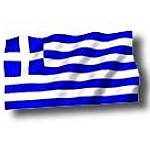CHAPTER III - Starting up 1.0.1Before start building a new scale model, I always try to study as much as possible the object of construction. If books, technical manuals and detailed walkaround photos are available, that will help a lot the model building process. To know how it works and how exactly it is made on real aircraft, always helps to build the scale model. Since I already had the official 662-page technical & maintenance manual for the Cessna C-172, the 448-page aircraft's spare parts catalog and the 1990 dated T.O GR1T-41D-1 flight manual for the Hellenic Air Force's T-41D Mescalero (Cessna 172's military version) in hands, I thought that it would be the best reference I could get before start building this kit. As always, enthusiasm encourages grandiose plans for scratch work, opened panels, hatches, doors etc.

The model parts are placed into sealed plastic bags. Careful inspection followed to spot any possible defects, cracks, broken parts & imperfections etc. As expected, everything was normal. Before starting the building, I placed the parts side by side and compared them with the diagrams and Nichimo's printed instructions. The model comes with a detailed cabin interior to include a realistic instrument panel. Unfortunatelly, Nichimo designed this model kit, without locator pins for matching the opposed parts, which translates as additional dry fitting work to match & aligning parts correctly before gluing. On the other hand, the aircraft's engine seems to be a real masterpeice and I believe that it could easily stand alone as a complete scale model. Of course lot of scratchbuilding is needed in order to make this Cessna look accurate in scale.

Unable to resist the temptation to cut the sprue parts & play with my new toy, I hurried to glue the fuselage main L & R sides. Yeah, yeah, I know - we are all styrene junkies. After my sweetheart wife inspected the result & confirmed that her Christmas gift made me very happy, she smiled & proudly signaled green light for further building.












































